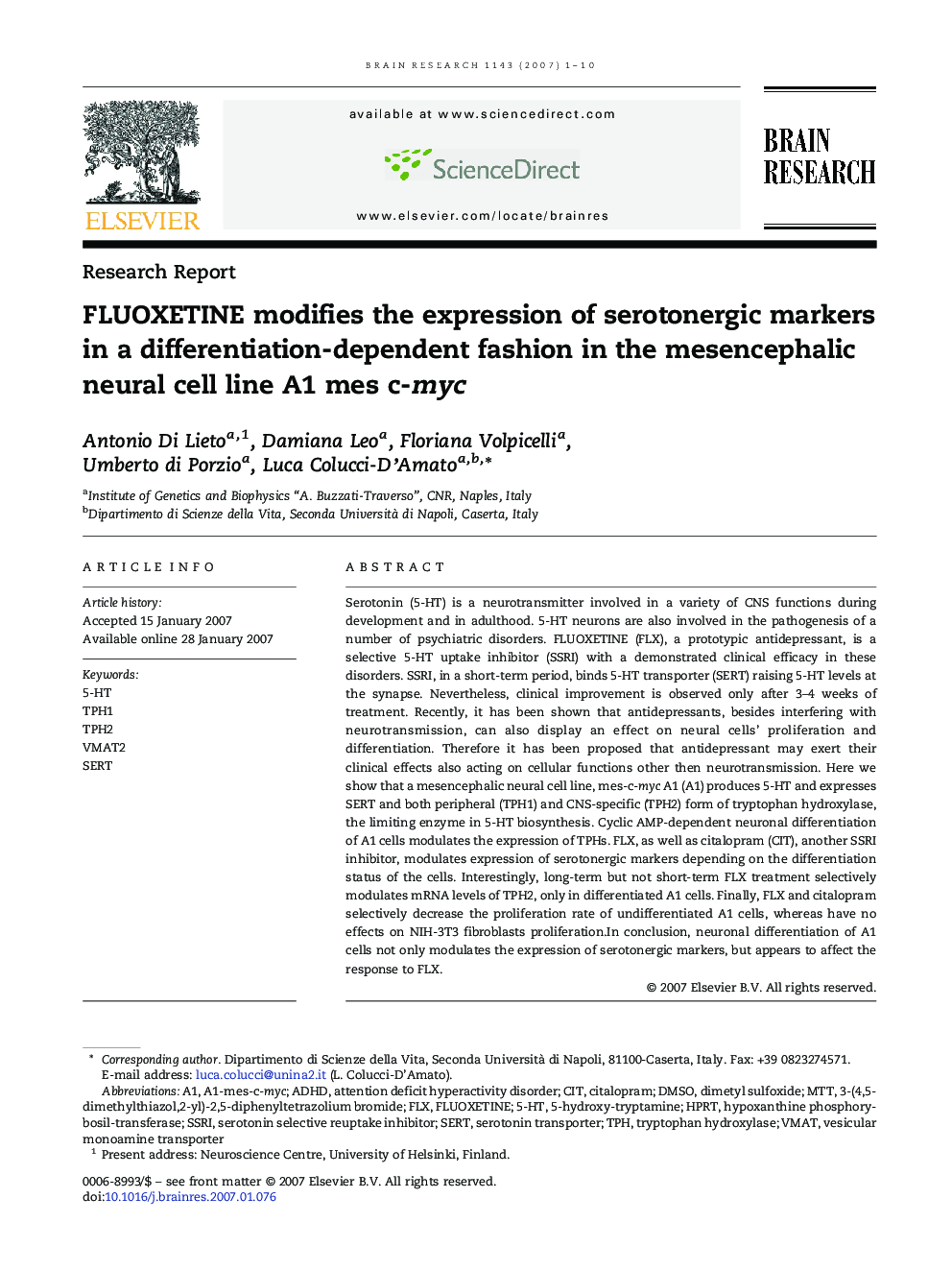| Article ID | Journal | Published Year | Pages | File Type |
|---|---|---|---|---|
| 4331288 | Brain Research | 2007 | 10 Pages |
Serotonin (5-HT) is a neurotransmitter involved in a variety of CNS functions during development and in adulthood. 5-HT neurons are also involved in the pathogenesis of a number of psychiatric disorders. FLUOXETINE (FLX), a prototypic antidepressant, is a selective 5-HT uptake inhibitor (SSRI) with a demonstrated clinical efficacy in these disorders. SSRI, in a short-term period, binds 5-HT transporter (SERT) raising 5-HT levels at the synapse. Nevertheless, clinical improvement is observed only after 3–4 weeks of treatment. Recently, it has been shown that antidepressants, besides interfering with neurotransmission, can also display an effect on neural cells' proliferation and differentiation. Therefore it has been proposed that antidepressant may exert their clinical effects also acting on cellular functions other then neurotransmission. Here we show that a mesencephalic neural cell line, mes-c-myc A1 (A1) produces 5-HT and expresses SERT and both peripheral (TPH1) and CNS-specific (TPH2) form of tryptophan hydroxylase, the limiting enzyme in 5-HT biosynthesis. Cyclic AMP-dependent neuronal differentiation of A1 cells modulates the expression of TPHs. FLX, as well as citalopram (CIT), another SSRI inhibitor, modulates expression of serotonergic markers depending on the differentiation status of the cells. Interestingly, long-term but not short-term FLX treatment selectively modulates mRNA levels of TPH2, only in differentiated A1 cells. Finally, FLX and citalopram selectively decrease the proliferation rate of undifferentiated A1 cells, whereas have no effects on NIH-3T3 fibroblasts proliferation.In conclusion, neuronal differentiation of A1 cells not only modulates the expression of serotonergic markers, but appears to affect the response to FLX.
